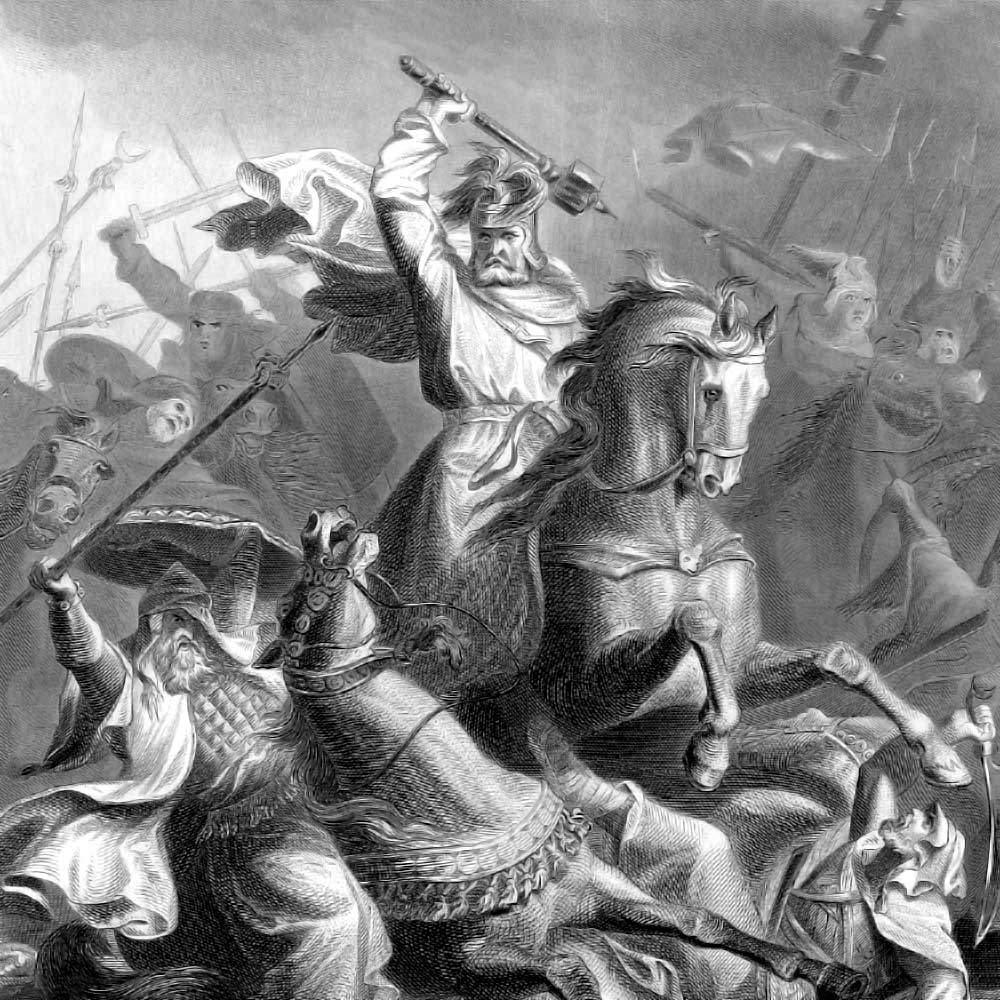Ricochet is the best place on the internet to discuss the issues of the day, either through commenting on posts or writing your own for our active and dynamic community in a fully moderated environment. In addition, the Ricochet Audio Network offers over 50 original podcasts with new episodes released every day.
 The Battle of Tours
The Battle of Tours
@dougwatt‘s post on the Battle of Lepanto reminded me of a post I’ve had floating around in my bean for a while now.
On 3 October 732, the Umayyad army of Abd al-Rahman, wadi of Al Andalus was headed for Tours when he encountered a large force of Franks in his path. This was a surprise. Abd al-Rahman was in Aquitaine. He hadn’t expected the rest of the Franks to come to the aid of Duke Odo, whom he had defeated at the Battle of the River Garonne. Odo had been at odds with Charles, Duke and Prince of the Franks and the Mayor of the Palaces of Austrasia and Neustria. Charles wasn’t a king. Charles appointed kings. (Nice gig if you can get it.)
Abd al-Rahman didn’t know how many Franks there were. He didn’t know if he could get around them. They were situated on a hill with trees before it and rivers covering each flank. That would put attacking with the Muslims’ primarily mounted force at a disadvantage. Abd al-Rahman decided to wait Charles out. Eventually, the Franks would attack.
Except they didn’t. Charles had come a long way since his first battle at Cologne some 16 years before. Charles had been a wet-behind-the-ears 28-year-old involved in a rather confusing civil war. At Cologne, Charles had been surprised. He wasn’t yet at full strength. His troops were green. Neither the battlefield nor the time had been of his choosing. Any one of those defects could easily have led to his defeat. All of them together definitely did. Charles barely escaped to lick his wounds and gather another army. In the future, he prevented any of those conditions from arising again. He never lost again.
For seven days, the Umayyads and the Franks glowered at each other. Abd al-Rahman wanted Charles to come down the hill. Charles had no intention to. Time was on the side of the Franks. The weather was getting colder, and the Umayyad army did not have heavy clothing. On the other hand, what Abd al-Rahman thought he knew about the Franks was that their forces consisted mostly of hastily assembled militia. They couldn’t withstand a charge by Abd al-Rahman’s heavy cavalry. Yes, the ground was disadvantageous, but that wouldn’t be enough to stop his army once it got rolling.
And so, on 10 October 732, the Muslims attacked uphill and through the trees. Time after time, they hit the Frankish line. Time after time, they were thrown back. The Franks weren’t green. Some of them had been with Charles since he started rebuilding his forces after Cologne. They were professionals.
Late in the day, there was a disturbance in the Muslim camp. Their tents and supplies were there, as well as wagons loaded with booty from the towns they had already sacked and numerous slaves they had taken. A small force of Frankish cavalry had flanked the Umayyads and was setting the slaves free and in general making pests of themselves. Some of the Umayyads turned back to defend their loot. Abd al-Rahman tried to rally them, but he couldn’t be everywhere at once, and the camp was under attack! Others started falling back too, without knowing exactly why. Panic started to spread.
Then the Franks came down the hill. Into the gaps left by missing units. Abd al-Rahman was killed, the panic became a rout, and the Battle of Tours was over. The Franks returned to their camp. They waited for morning rather than launching an immediate pursuit. Muslim chroniclers put this down to Frankish cowardice, which is silly because the last thing you want to do is pursue an enemy that is faster than you into the darkness.
Thus ended this particular Muslim incursion into Gaul. Historians argue to this day about whether it was an invasion or merely a big raid. The fact of the matter is that Charles was in command of the only force capable of defeating the Umayyads. There were raids to come, but nothing on this scale was ever attempted again. If he had lost, the “raid” would have been invasion enough. Putting together another such army would have taken years – years the Franks probably wouldn’t have had. A great weight was lifted from the people of the region, and Charles picked up a nickname.

“Martel.” The Hammer.
Published in History




The war with Islam never really ended. It was only on a 150 year hiatus.